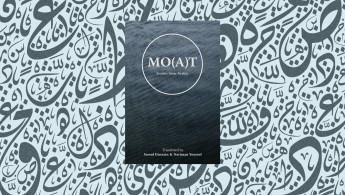Mo(a)t Stories from Arabic: Uncovering the enduring legacy of African-Arabic literature
Mo(a)t: Stories from Arabic is a wide collection of short stories written originally in Arabic and translated into English by Sawad Hussain and Nariman Youssef.
The uniqueness of the collection lies not in the exclusive featuring of African writers writing in Arabic, but rather its focus on the writers who ma choice to write in Arabic despite living abroad. The collection is therefore a literary assertion of the African and Arabic tradition.
"Mo(a)t: Stories from Arabic is a brilliantly curated and translated anthology that binds together unique and powerful African Arabic voices"
Mo(a)t: Stories from Arabic is a UEA Publishing translation project initiated and edited by Garen J. Torikian published by Strangers Press in November 2021. It unites different short stories in their themes, settings, and style. In keeping with this diversity, the featured stories have a wide cast of unique characters and grapple with different subjects: social problems, conflict, feminism and the plight of women in the region, as well as familial issues.
They are also set in diverse places and spaces; from Libya to Mauritania, from the office to the street. Each story was written with a distinctive style and form. This distinctiveness in craft ranges from the blending of poetry, prose and form. From We Have a River of Stone: To Virginia Woolf, to dramatic elements within Portrait of a Libyan Scream and Hamidinou’s Smile to the internal reflections shown in My Father’s Footsteps.
|
Whilst the prospect of uniting them with all their differences may seem difficult, in this anthology, they come together and balance each other elegantly. This is due in part to the choice of their contemporary writers to write in Arabic, despite living in the diaspora.
When reading the narratives in Mo(a)t: Stories from Arabic, this choice seems to come as a reflection of their personal attitudes and positions in regard to writing in their mother tongue. Crucially, it is a testament to their longing to be closer to their homeland, which they left or were forced to through exile.
However, their conscious choice to write in Arabic also comes from their desire to express themselves, to find the language of their "soul".
The beauty of the Arabic language permits the writers in their quest, for example, the subtle “sighs” that are able to communicate the character’s thoughts and feelings while remaining veiled, like in Dr Ishraga Mustafa Hamid story We Have a River of Stone: To Virginia Woolf.
It asserts their belonging to both the African and Arab literary traditions. This positionality, which continues to be questioned, is a key theme that underlines the anthology and positions the writers in a limbo state between place and language. However, this anthology shows the continued legacy of language, place, craft and subjects.
Throughout the book, there is a blending of genres such as poetry and prose, the use of Arabic dialects, taking inspiration from oral stories and experimentation of the short story form. For those familiar with African-Arabic literature, such innovation is commonplace, but this is the first time such a text is translated into English.
Mo(a)t: Stories from Arabic is a brilliantly curated and translated anthology that binds together unique and powerful African Arabic voices. The stories put the reader in a space where they can appreciate the lived experiences of the writers, bolstered by their deep explorations of the human condition, and the power dynamics that shape it.
Saliha Haddad is an Algerian journalist, writer, teacher, and literary agent.
Follow her on Twitter: @sallyhad3

![sudan women [getty] sudan women [getty]](/sites/default/files/styles/image_330x185/public/media/images/5019D7F4-52AF-4377-8A05-885D27476479.jpg?h=d1cb525d&itok=tKXV7r-W)
